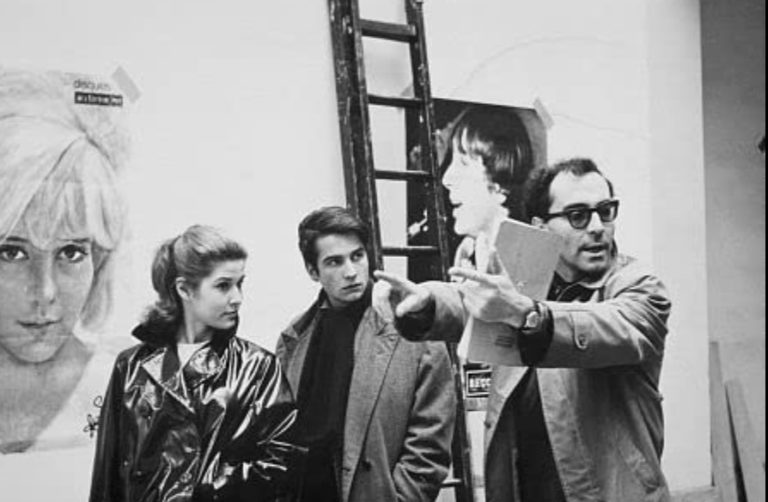
Jean-Luc Godard has died at the age of 91.
The celebrated Swiss-born filmmaker came to prominence as part of the French Nouvelle Vague (New Wave) movement that revolutionized the cinematic arts in the 1960s. As an auteur, his bold innovations and unconventional style influenced an entire generation of directors around the globe. His 1960 feature Breathless brought him to the attention of cineastes who anointed Godard as a visionary whose influence would resonate for decades.
In his IndieWire tribute to Godard, Eric Cohn wrote that Godard’s “filmography consists of everything from genre deconstructions to political screeds and avant-garde gambles designed to confuse and provoke new avenues for an evolving art form. Through it all, Godard remained a divisive figure whose prolific output embodied — and often interrogated — the cultural and intellectual proclivities of French society and the world at large.”
As news of Godard’s passing was shared in news media, tributes to his legacy began pouring in. French president Emmanuel Macron tweeted his admiration, writing that “Jean-Luc Godard, the most iconoclastic of New Wave filmmakers, had invented a resolutely modern, intensely free art.
We are losing a national treasure, a look of genius.
”
Godard was esteemed as a colleague by a pantheon of filmmakers whose work came to define avant-garde cinema for the post-WWII generation and helped make Paris a major capital of innovative work. They included Claude Chabrol, Alain Resnais, Jacques Rivette, Eric Rohmer, Francois Truffaut, and Agnes Varda.
While an ethnology student at the Sorbonne, Godard started attending Henri Langlois’s Cinematheque and started writing for the influential publication Cahiers du Cinema. His first feature, Breathless (A bout de soufflé), starring Jean-Paul Belmondo and Jean Seberg, introduced his signature “jump cut” technique that interrupted the continuity of the shots. During the 1960s, Godard directed nearly two dozen features and short films, earning him a reputation as one of the most acclaimed filmmakers of his generation. Works during this period included Masculin Feminin, Vivre sa Vie, Alphaville, and Pierrot le Fou.
Godard was unashamed of his commitment to leftist and Marxist ideologies. During the unrest that beset France in May of 1968, Godard and Truffaut led a vocal protest against the Cannes Film Festival that resulted in its cancellation that year. He declared “I’m talking solidarity with the students and workers, and you’re talking about tracking shots and close-ups!” Afterwards, he helped create the Dziga Vertov Group, a collective devoted to producing more experimental works with political overtones. His 1972 film Tout Va Bien, costarring Jane Fonda, emerged from this effort.
Godard’s only English-language film was the 1987 dystopic King Lear, a commission from Cannes Films. His later films include In Praise of Love (2001), Film Socialisme (2010), and Goodbye to Language (2014). He made his last film, The Image Book, in 2018 at the age of 88.

